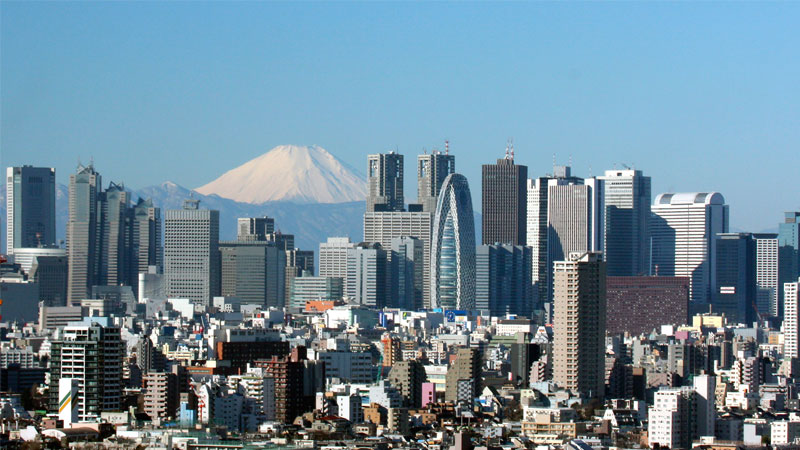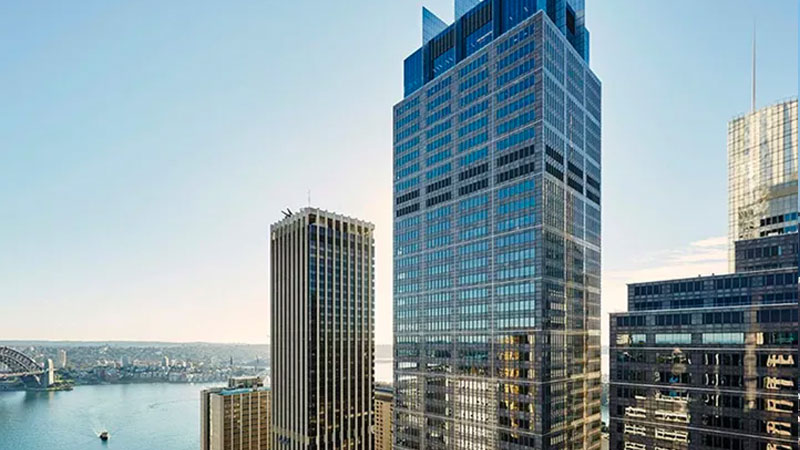Office Markets Increasingly Viable for Offshore Investors
Sovereign wealth and pension funds looking for stable markets to deploy capital in are increasingly finding confidence in Australia’s commercial markets, according to JLL head of research Andrew Ballantyne.
Speaking at The Urban Developer’s Commercial Real Estate vSummit, Ballantyne said the key to reviving Australia’s subdued commercial markets would come down to the nation’s economic “Japanification” in the eyes of offshore investors.
“The spread between economies like Australia and other mature economies, in particular Japan, is narrowing,” Ballantyne said.
“The gap in maturity of Australia’s markets has long been wide because of our high-growth, high-inflation economy.
“If you look at our potential GDP, population growth and inflation, we are much closer to Japan than where we were 20 years ago and that will have implications for commercial asset pricing.”
Ballantyne said Australia, traditionally a difficult location for offshore players to hit return hurdles, was now an increasingly viable and relevant option and recognised a core market in Asia Pacific following its successful neutralisation of Covid-19.
“A lot of the capital currently needing to be deployed is looking for exposure to mature markets, low volatility of returns and certainty of cash flow.
“Our GDP growth is now expected to be one of the strongest globally over the next decade and population growth, while expected to be weak this year and the year after, is projected to bounce back strongly.”

The value of commercial real estate transactions in Australia has picked up pace over the closing months of the year with total sale volumes across the year now at $13.63 billion.
Figures compiled by JLL show a strong resurgence in capital markets activity across November, with almost $1.5 billion in deal flow negotiated in one week.
In the second week of November, almost $1.5 billion of property exchanged hands.
Major transactions included Chinese sovereign wealth fund Chinese Investment Corp picking up a stake in the Grosvenor Place office tower in Sydney from Dexus for $925 million and Charter Hall’s acquisition of six Bunnings stores for $353 million.
Attractive yield spread, historically low financing costs, low vacancy levels on a relative basis and a resilient economy firmly in control of the Covid-19 pandemic, remain appetising factors for domestic and offshore investors.
Despite the uptick in recent deals, the current annual tally of $13.63 billion—excluding hotels—remains grim reading in comparison to the all-time record high of $36 billion transacted across 2019.
National office investment markets recorded $7.21 billion of sales—above $5 million—over the course of 2020, plummeting from 24.2 billion in sales over the full calendar year in 2019.
Volumes rebounded by 35 per cent quarter-on-quarter, and while overall third quarter numbers were down 19 per cent year-on-year, transactional activity accelerated across several major markets as investors deployed capital with more confidence.

The most active offshore groups across the year have been from Singapore ($2.28 billion), Germany ($1.30 billion) and China ($1.29 billion) which have made up the vast majority of offshore investment activity.
Foreign investment volumes across the office, retail and industrial sectors have totalled $5.97 billion over the year, a 44 per cent of total transaction activity.
Meanwhile, foreign investment volumes across the office, retail and industrial sectors the year prior totalled $12.09 billion, which was 34 per cent of total transaction activity.
According to recent findings from Knight Frank, over the past five years 60 per cent of large office sales— north of $100 million, have been to overseas investors, while 40 per cent were to domestic investors.
Knight Frank chief economist Ben Burston said overseas investors were likely now to be the more dominant buying group in Australia’s office market in 2021 as they were more prepared than domestic buyers to accept lower returns.
“We expect overseas investors to maintain or strengthen their presence in 2021, making up at least 75 per cent of buyers for large office sales, if not more.
“Australia has been slower to see the dramatic reduction in real and nominal interest rates that other major economies saw post-GFC, and so major global funds are more accustomed to the shift-down in IRRs and income returns that it implies.”
The Knight Frank 2021 outlook revealed office investment performance in the Australian market moving forward was expected to be relatively strong compared with previous downturns.
“We expect capital growth for office property to weaken further through the rest of the year and into 2021, with expectations of -1 per cent in 2020 and -2 per cent in 2021, leaving total returns a little over four per cent and three per cent respectively, compared to 11.5 per cent in 2019,” Burston said.
“Assuming the economy continues to recover in 2021, asset performance should recover in 2022 as conditions in the commercial property market improve with lag.
“Capital growth is expected be around four per cent in 2022, with total return rising to nine per cent.”














